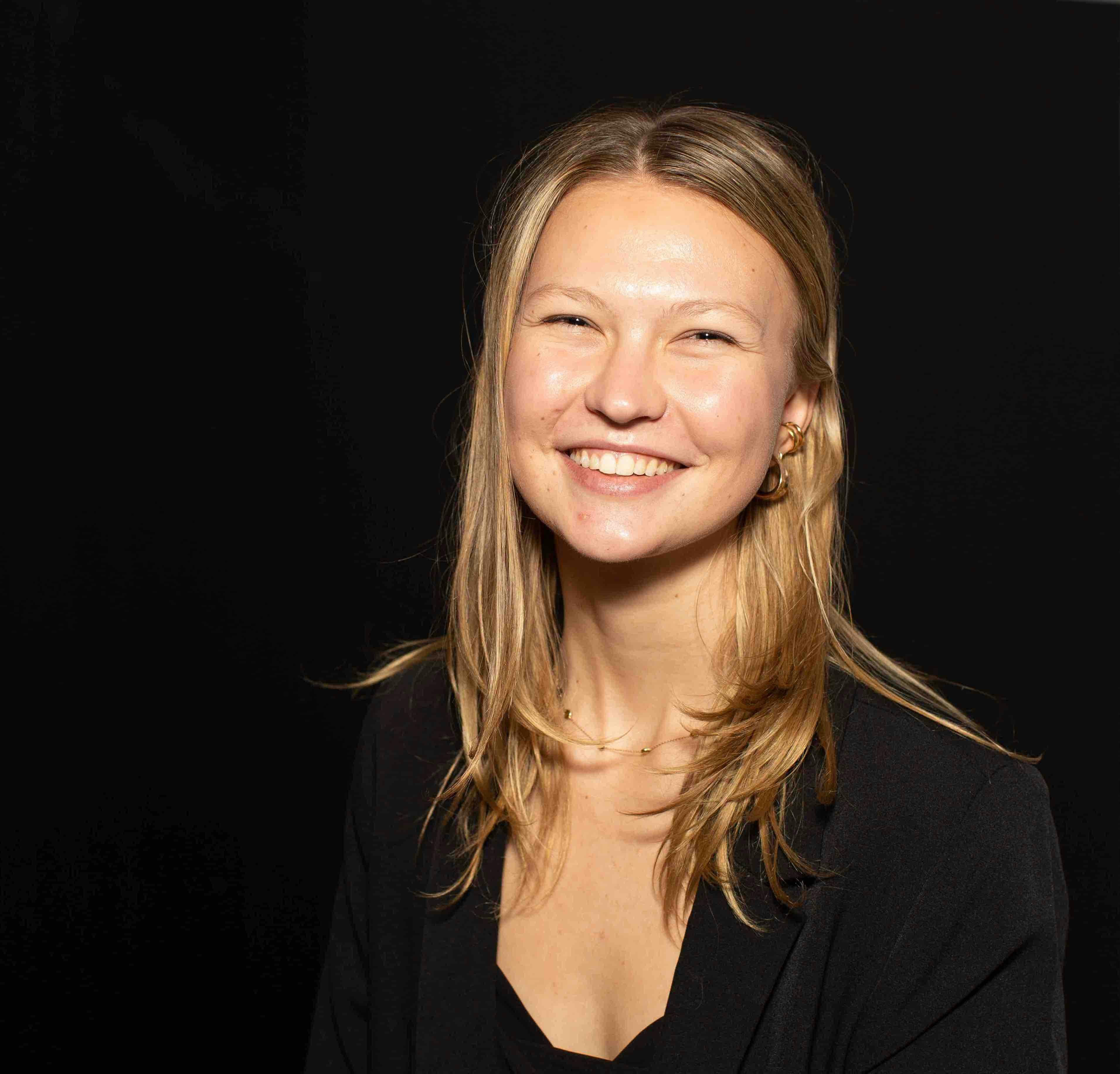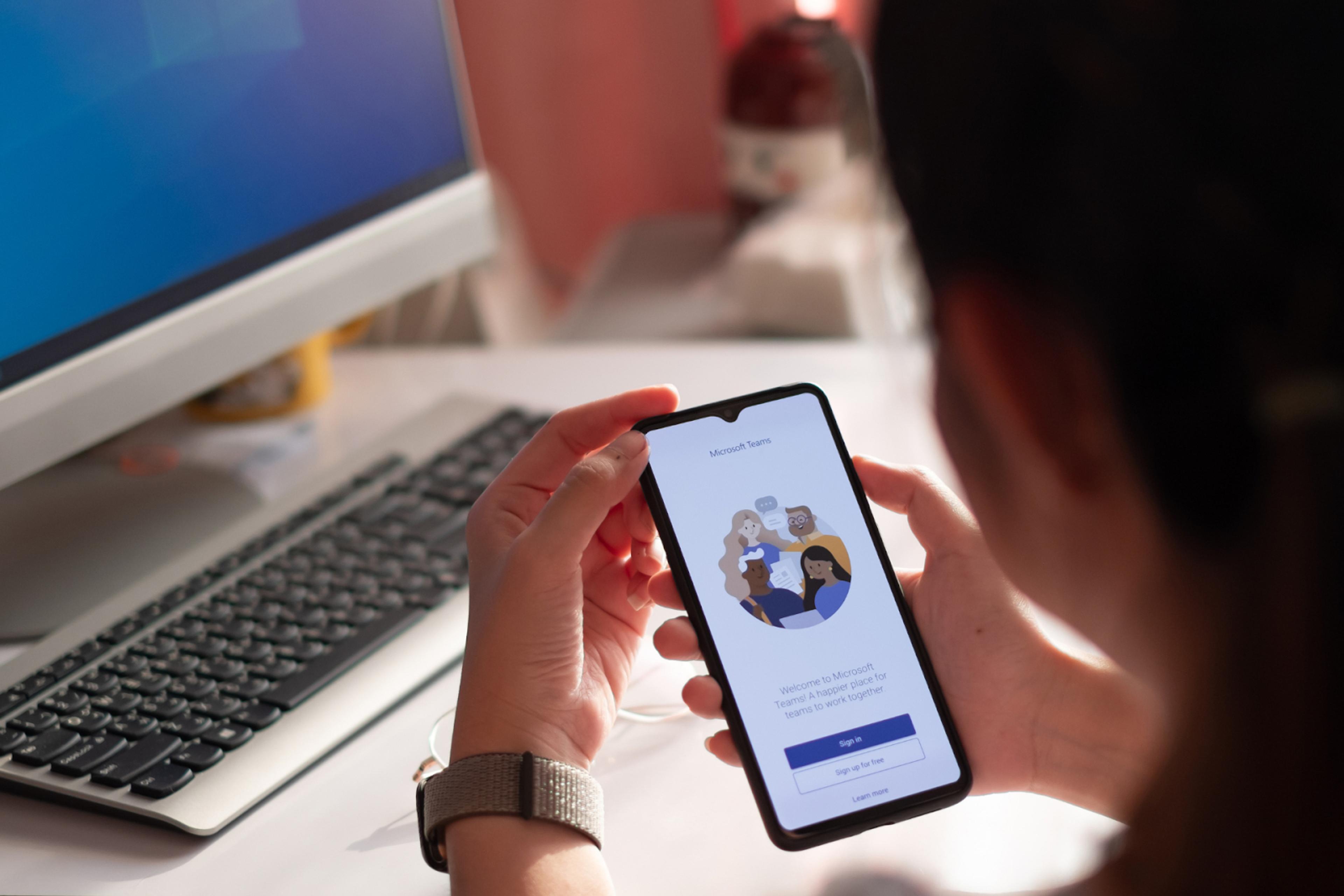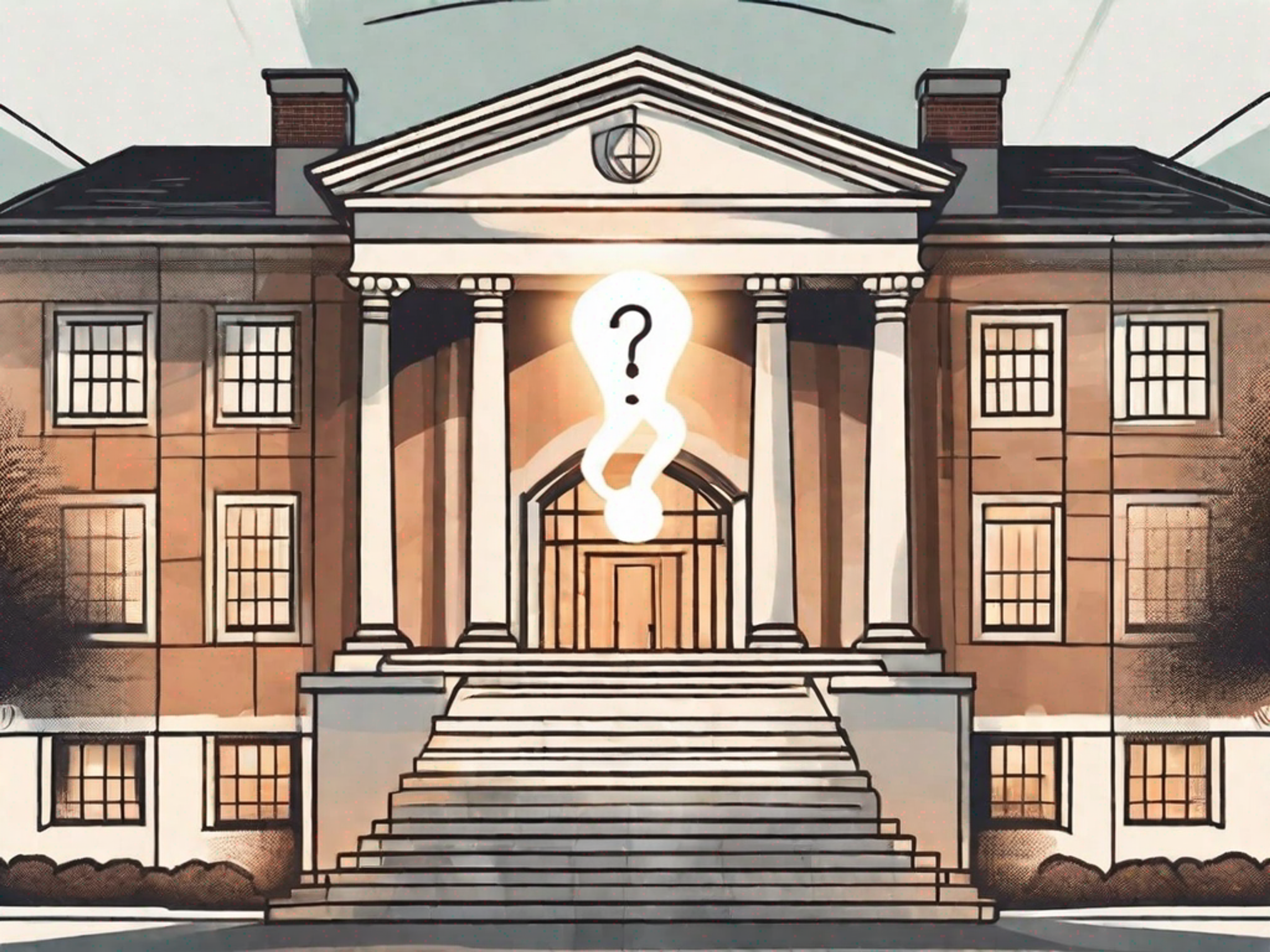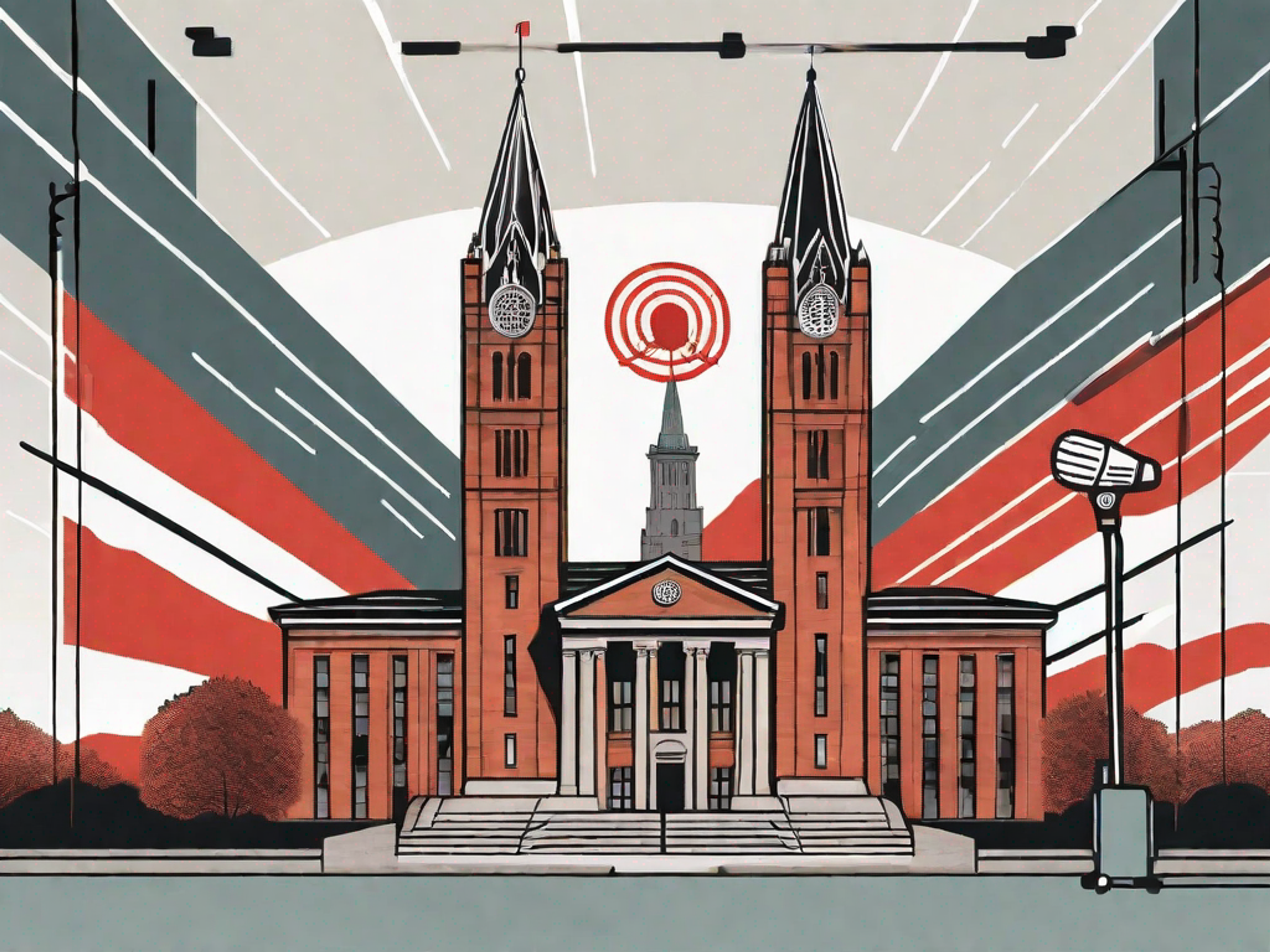20+ Best Questions to Ask at the End of an Interview
Discover 20+ essential questions to ask at the end of your job interview to impress employers, gain insights, and make informed career decisions.

By Amelia C.
Posted March 6, 2025

Table of Contents
Job interviews can be nerve-wracking, but they're also a great chance to show off your skills and learn more about the company. While it’s important to be ready for the typical interview questions, many people forget how important it is to have some of their own questions prepared.
Asking thoughtful questions at the end of a job interview not only shows you're genuinely interested in the job, but it also helps you gain key info to make the right choice for your career. In this article, we’ll share over 20 great questions to ask at the end of an interview.
We'll cover everything from the role itself and responsibilities to company culture, growth opportunities, and what happens next in the hiring process. By asking these smart questions, you’ll get a better understanding of the position, leave a strong impression on the interviewer, and set yourself up for success in your job search.
Why Asking Questions in a Job Interview Is Important
Asking thoughtful questions during a job interview is a crucial aspect of the hiring process that benefits both the candidate and the employer. It demonstrates the candidate's genuine interest, preparation, and engagement while providing valuable insights into the company and role.
Benefits of Asking Questions
Asking questions in an interview serves multiple purposes:
- Demonstrates Interest: By asking insightful questions, candidates show their genuine interest in the company, role, and industry. Curiosity conveys commitment and dedication, leaving a positive impression on the interviewer.
- Gathers Valuable Information: Interviews are a two-way process. Asking questions allows candidates to gain deeper insights into the company's future plans, potential challenges, and growth opportunities.
- Showcases Critical Thinking: Well-thought-out questions demonstrate a candidate's ability to think critically and analyze complex situations.
- Assesses Cultural Fit: Questions about firm culture, team dynamics, and collaborative processes provide insights into the work environment. This information helps candidates determine if the company aligns with their values and preferences.
Demonstrating Your Interest and Engagement
Asking questions after your job interview is an effective way to demonstrate interest and engagement:
- Sets You Apart: Thoughtful questions can differentiate a candidate from others. It shows engagement, proactivity, and genuine interest in the opportunity.
- Creates Personal Connection: Engaging in meaningful conversation beyond the typical question-and-answer format allows candidates to make a personal connection with the interviewer.
- Shows Enthusiasm: Inquiring about professional development opportunities demonstrates long-term commitment and enthusiasm for personal growth within the organization.
- Reflects Company Research: Tailoring questions to the specific company and job role demonstrates thorough research and genuine interest in the organization.
What is the best question to ask at the end of an interview?
There isn't a single "best" question to ask at the end of a job interview—it depends on the situation, the role, and what you've learned during the interview process. The most effective questions are those that demonstrate you've paid close attention to the conversation, understand the job description, and are genuinely interested in the role and the company.
For example, you might ask the hiring manager about specific challenges mentioned during the screening interview:
- "You mentioned [specific challenge]. How does the team typically approach this?"
Or you could ask about the company's future plans and how the position you're applying for will contribute to them:
- "What are the company’s top priorities over the next year, and how could someone in this role make a valuable contribution?"
The key is to ask questions that reflect your preparation, engagement, and a clear understanding of the company culture and work environment. This shows that you’re not just another candidate but someone who is genuinely interested in the opportunity and ready to make an impact.
Questions About the Role and Responsibilities
When preparing for a job interview, it's crucial to have a set of questions ready to ask the interviewer. These questions not only demonstrate your interest in the position but also help you gather key information about the role and its responsibilities. Here are some key areas to focus on:
Role-Specific Questions
To gain a deeper understanding of the position, consider asking:
- "What are the skills and experiences you're looking for in an ideal candidate?"
- "What attributes does someone need to have to be successful in this position?"
- "What types of skills is the team missing that you're looking to fill with a new hire?"
- "Is this a new role or will I be taking over for an employee who's leaving?"
- "How does this position contribute to the company overall?"
These questions help clarify the employer's expectations and provide insight into how your skills align with the role.
Day-to-Day Responsibilities
To get a clearer picture of what the job entails daily, ask:
- "What does a typical day or week look like in this role?"
- "Can you show me examples of projects I'd be working on?"
- "What are the biggest challenges that someone in this position would face?"
- "What sort of budget would I be working with?"
Understanding the day-to-day responsibilities helps you assess if the role aligns with your interests and skills.
Performance Expectations
To gage how your performance will be evaluated, consider asking:
- "What are the most important things you'd like to see someone accomplish in the first 30, 60, and 90 days on the job?"
- "What are the performance expectations of this position over the first 12 months?"
- "What metrics or goals will my performance be evaluated against?"
- "Do you expect the main responsibilities for this position to change in the next six months to a year?"
These questions demonstrate your commitment to success and help you understand how your performance will be measured. By asking these questions, candidates can gain valuable insights into the role, demonstrate their genuine interest, and make an informed decision about the opportunity. Remember, a job interview is a two-way process, and these questions help ensure that the position aligns with your career goals and expectations.
Questions About the Company Culture and Work Environment
Understanding a company's culture and work environment is crucial for job seekers. It helps determine if the organization aligns with their values and work style preferences. Here are some insightful questions to ask during a job interview to gain a deeper understanding of the company's culture, team dynamics, and work-life balance.
Company Culture Questions
- "Can you describe the company's values and how they manifest in the day-to-day workplace?"
- "What do you enjoy most about working here?"
- "How does the company celebrate and recognize high performers?"
- "What's something specific to this workplace that sets it apart from others?"
These questions provide valuable insights into the company's core values, employee satisfaction, and unique aspects of the work environment. They help candidates assess if the culture aligns with their personal values and work preferences.
Team Dynamics
- "How do team members typically collaborate on projects?"
- "Can you describe the last team meeting you had?"
- "What's your approach to onboarding new team members?"
- "How does the team handle conflicts or disagreements?"
Understanding team dynamics is essential for assessing how well a candidate might fit into the existing team structure. These questions reveal information about collaboration styles, communication practices, and conflict-resolution methods within the team.
Work-Life Balance
- "How does the company promote work-life balance for its employees?"
- "What are the expectations for after-hours communication?"
- "Can you describe the company's approach to flexible working arrangements?"
- "How often do team members work overtime?"
Work-life balance has become increasingly important for job seekers, with 72% of workers considering it a critical factor when choosing a job. These questions help candidates understand the company's stance on maintaining a healthy balance between work and personal life. When asking these questions, it's important to pay attention not only to the content of the answers but also to the interviewer's tone and body language. This can provide additional insights into the culture and work environment.
Remember, the goal is to gather information that will help you make an informed decision about whether the company is the right fit for you. By asking thoughtful questions about company culture, team dynamics, and work-life balance, candidates can gain a comprehensive understanding of what it would be like to work for the organization.
Questions About Growth and Development Opportunities
When considering a new job opportunity, it's crucial to ask your potential employer about growth and development prospects. These questions can provide valuable insights into how the company invests in its employees' professional advancement. Here are some key areas to explore:
Career Progression
- "What routes for career growth does your company offer?"
- "How does the company define qualifications for promotion opportunities?"
- "Could you provide an example of a senior role, its qualities, and required skills?"
- "How often do senior roles become available for consideration?"
These questions help candidates understand the potential career paths within the organization and the criteria for advancement. It's important to know if the company values internal promotions and supports employee growth.
Training and Development
- "What opportunities are there for career development, including additional training, envisioning new projects, and taking on a leadership role?"
- "How do you help your employees grow as professionals?"
- "Does your company provide tuition reimbursement or opportunities to take classes and credits outside of work?"
- "What are some of the major things that employees learn while working here, besides how to perform their roles?"
Asking about training and development opportunities demonstrates a candidate's commitment to continuous learning and improvement. Companies that invest in their employee's skills and knowledge often see higher retention rates and job satisfaction.
Mentorship Programs
- "What formal or informal mentorship opportunities does the company provide?"
- "If I am interested in practicing a newly acquired skill, could I shadow someone to learn more about their work?"
Mentorship programs can significantly impact an employee's growth and career trajectory. Research shows that mentored employees enjoy several benefits, including expert support and opportunities for advancement. In fact, 25% of employees who have mentors received a salary-grade change, compared to only 5% of workers who did not participate in mentorship programs. Moreover, mentees are promoted five times more often than those without mentors. This statistic highlights the importance of mentorship in career progression and underscores why candidates should inquire about such programs during interviews.
When asking these questions after a job interview, pay attention to the interviewer's responses and body language. Their enthusiasm and detailed answers can indicate the company's commitment to employee growth and development. Remember, the goal is to find an organization that aligns with your career aspirations and supports your professional growth.
Questions About Next Steps and Follow-up
Interview Process Timeline
Asking about the timeline for the hiring decision is not only acceptable but also demonstrates professionalism and genuine interest in the position. Candidates can phrase their inquiry as follows: "Thank you for the opportunity to interview for the position. I wanted to follow up and ask if you have an estimated timeline for when a hiring decision will be made." This approach shows respect for the company's process while expressing enthusiasm for the role.
If the interviewer provided a specific deadline during the interview, it's advisable to wait until that deadline has passed before following up. After the deadline, candidates should wait an additional day or two before sending a follow-up message. In cases where no specific timeline was given, it's appropriate to wait one week before inquiring about the interview status.
Decision-Making Process
Understanding the decision-making process can help candidates manage their expectations and plan their job search effectively. In some cases, hiring managers might need additional time to make a decision or consult with other team members.
Candidates should be aware that a lack of immediate response doesn't necessarily indicate rejection. Many factors can influence the decision-making timeline, including urgent priorities elsewhere in the business, disagreements over candidate selection, or key personnel being on vacation.
Follow-up Communication with Hiring Manager
When following up, it's crucial to maintain a professional and courteous tone. Email is often the preferred method of communication unless the recruiter or hiring manager has expressed a preference for phone calls. Keep the message positive, concise, and to the point. If the initial follow-up doesn't receive a response, it's acceptable to send another email after a reasonable interval. However, candidates should avoid appearing pushy or desperate. Instead, they can use this opportunity to demonstrate their continued enthusiasm for the role and showcase any relevant updates or achievements since the interview.
In some cases, candidates may receive a job offer from another company during the waiting period. It's appropriate to inform the interviewer about such developments, either to withdraw from consideration or to use the offer as a negotiating tactic. This transparency can help expedite the decision-making process and ensure clear communication between both parties.
Common General Post-Interview Questions
- Can you describe a typical day in this role?
- What are the biggest challenges the person in this position will face?
- How does this role contribute to the company's overall goals and growth?
- What does the company’s culture prioritize in terms of employee happiness and work environment?
- Can you describe the team I’ll be working with and how success is evaluated?
- What are the typical career paths for someone in this position?
- How does the company support professional development and career growth?
- How do performance reviews work here, and what would success look like in the first three months?
- What opportunities exist for collaboration between departments?
- Can you tell me about the company's growth and what that means for this role?
Post-Interview Questions for Consulting
- What types of clients would I be working with, and what industries are most common?
- Can you describe a recent successful project the team worked on?
- How does the company approach solving complex problems with limited information?
- What opportunities are there for professional development in consulting here?
- How do consultants typically balance multiple projects and clients?
- What are the biggest challenges the firm anticipates facing in the next few years?
- How does the team collaborate when working under tight deadlines?
- Can you describe the company's culture around work-life balance in consulting?
- How is success measured in consulting projects?
Post-Interview Questions for Finance
- How does the team handle high-pressure situations, particularly during financial reporting periods?
- What are the most important metrics used to evaluate success in this role?
- How does the company approach risk management and financial forecasting?
- Can you share more about the company’s goals for growth in the financial sector?
- What tools and software does the team use for financial analysis and reporting?
- How are performance reviews conducted for finance professionals here?
- What does the typical career path look like in your finance department?
- Can you provide insights into how financial decisions are aligned with the company's overall strategy?
- How does the company stay competitive in a constantly changing financial landscape?
- What is the role of collaboration in cross-departmental financial projects?
Land Your Dream Consulting Job With the Help of an Expert
Trying to enter into the world of consulting is no small feat. That’s why at Leland, we have a broad network of world-class coaches who know what it takes to get into a consulting job and are ready to help review your resumes, discuss case interview preparation strategies, and give you refreshers on key skills needed to land the job. Browse our expert coaches here and find the highest-rated ones below.
Top Coaches
Conclusion
Asking thoughtful questions at the end of a job interview can have a significant impact on your job search success. , company culture, growth opportunities, and next steps, you demonstrate genuine interest and gain valuable insights to make an informed decision. This approach not only leaves a lasting impression on the interviewer but also helps you assess if the position aligns with your career goals and values.
Remember, an interview is a two-way conversation. By engaging actively and asking smart questions, you position yourself as a proactive and enthusiastic candidate to the hiring manager and team. This strategy can set you apart from other applicants and increase your chances of landing the job. As you prepare for your next job interview, take time to craft questions that showcase your research, critical thinking skills, and eagerness to contribute to the company's success.
FAQ’s: Questions to Ask at the End of an Interview
What are some appropriate questions to ask during a final interview?
- You might consider asking about the typical daily responsibilities in the role, details about the team you would be joining, who your direct supervisor would be, and if there are any concerns about your suitability for the position that you could address.
After an interview concludes, what is the best question to ask?
- It's insightful to inquire about what the interviewer personally appreciates about working at the organization, how they would describe the company culture, the type of supervision provided, and successes achieved by previous employees in the position.
Can you list the top ten questions to ask an interviewer?
- Consider asking about the main priorities for the role in the coming months the characteristics of successful employees, what the interviewer enjoys about their job, and the company's vision for the future and how you could contribute to it.
What is a smart question to ask an interviewer?
- Asking about changes in the interviewer’s role since they started, their previous roles, and their reasons for joining the company can provide deep insights and show your interest in the interviewer's career path.
What are some strategic questions to ask at the end of an interview to make a good impression?
- Inquire about what a successful first year in the role looks like, the typical career path for someone in the position, and if there are any concerns about your resume or experience that you could clarify. This indicates your forward-thinking and proactive attitude.
What should I avoid asking during an interview?
- It's advisable to steer clear of questions about salary or job conditions unless initiated by the interviewer. Focus instead on questions about the role, team dynamics, and growth opportunities within the company.
How can I show genuine interest in the role through my questions?
- Asking questions that reflect research about the company or industry can show genuine interest. For example, you can ask about the company's recent achievements, industry challenges, or upcoming projects that align with your skills.
What questions can I ask to understand the company's values and long-term vision?
- Consider asking about how the company approaches innovation, its long-term goals, or how it measures success beyond financial performance. You can also inquire about its commitment to diversity, sustainability, or social responsibility.
What should I ask to understand the company's work-life balance?
- You could ask about the company’s approach to work-life balance, if there are flexible work arrangements, or how the organization supports employee well-being and professional development. This will give you insights into the company’s culture and priorities.
For more advice on how to navigate the consulting interview process, check out some of our other articles:

Written by Amelia
5.0
(2)
Career, SEO, Writing, and College Application Coach - My day job is content/SEO at Leland (welcome!) -- I love it here and am super passionate about coaching and giving people the tools they need to succeed - Research Fellow at Contrary Capital, a talent and research-driven investment firm (https://research.contrary.com/) - Graduated from BYU, studied Political Science (Major GPA 3.98) and Arabic (Advanced OPI score) - Former Editor of the BYU Political Review, the biggest publication in the college - Dean's List (top 5%) - Highest national award for Model UN paper (representing China) - Senior Fellow for Passages Israel (1/200 selected) - led groups of 300+ students to Israel - Past roles include Chief of Staff at an early-stage health tech startup, marketing for BYU athletics and The Kennedy Center, and social impact consulting for an international agriculture research firm
Amelia has helped clients get into organizations like:
Thai Union Group PCL
Brigham Young University
Stay in the loop. Go places.
Join 100,000+ others and receive free resources, exclusive event invites, and personalized support to reach your goals.











